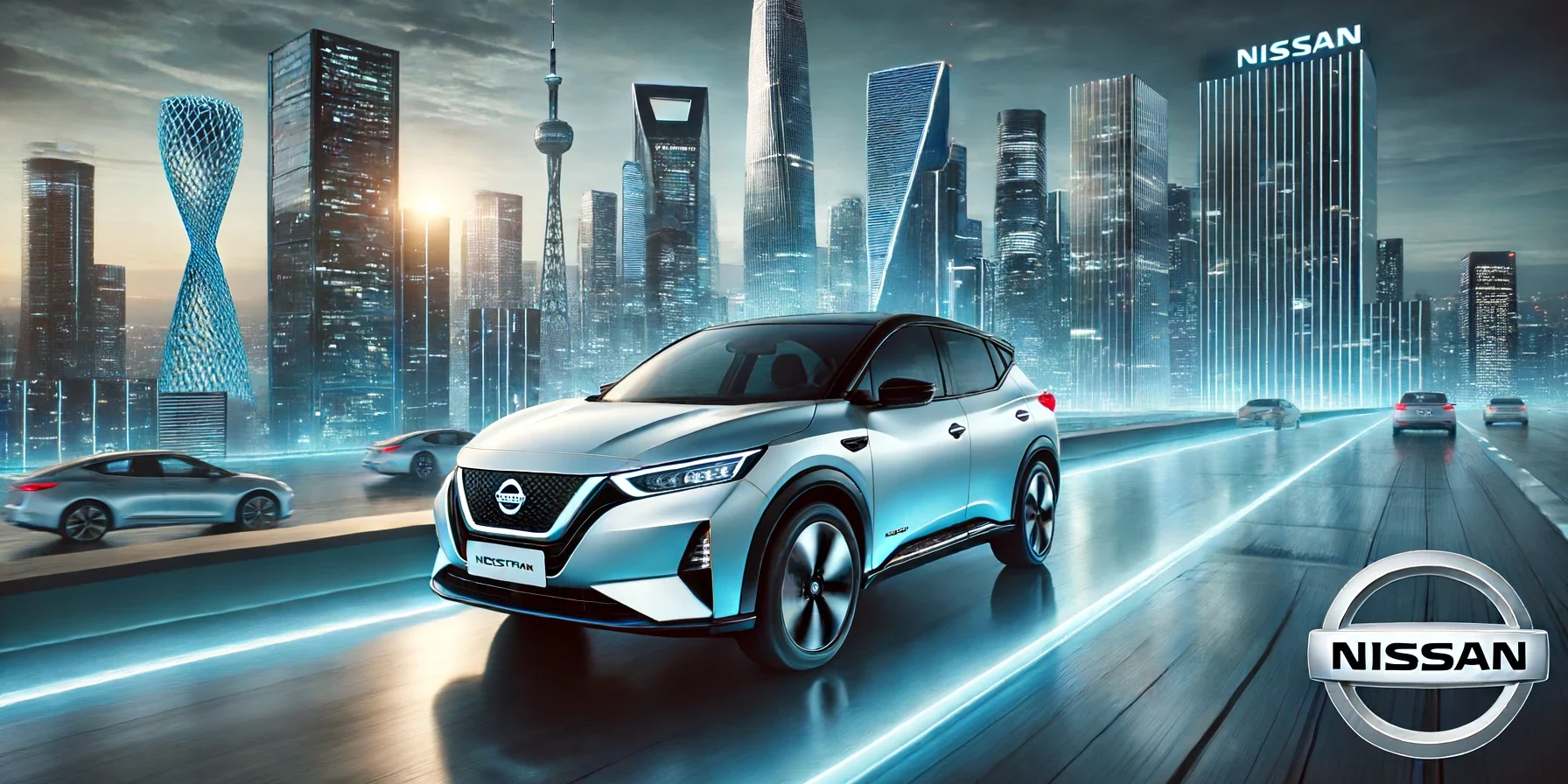Nissan’s Eco-Forward Vision: Pioneering Sustainable Innovation
Nissan, a global leader in the automotive industry, continues to drive forward with a strong commitment to innovation, sustainability, and advanced technology. This article explores Nissan’s latest initiatives, their expanding lineup of electric vehicles (EVs), and their dedication to creating a sustainable future.
Expanding the Electric Vehicle Lineup
Nissan has significantly expanded its electric vehicle offerings, highlighted by the introduction of the Nissan Ariya. The Ariya, an all-electric crossover SUV, showcases Nissan’s dedication to sustainability and performance. It offers a range of up to 500 km (310 miles) on a single charge, thanks to its advanced battery technology. The Ariya supports fast charging, allowing the battery to reach 80% capacity in just 30 minutes.
The Ariya features a sleek, modern design with a spacious interior and advanced technology. The dual 12.3-inch displays provide a panoramic view of the vehicle’s controls and infotainment system, enhancing the driving experience. The Ariya also comes equipped with a suite of advanced driver-assistance systems (ADAS), including ProPILOT Assist 2.0, which offers hands-off driving capability in certain conditions.
Nissan Leaf: Pioneering EV
The Nissan Leaf, one of the world’s best-selling electric vehicles, continues to be a cornerstone of Nissan’s EV lineup. The Leaf offers a range of up to 363 km (226 miles) with its 62 kWh battery, providing a practical solution for daily commuting and longer trips. It features e-Pedal technology, allowing drivers to accelerate and decelerate using only one pedal, enhancing driving convenience.
The Leaf’s design emphasizes functionality and efficiency, with a focus on aerodynamics and sustainability. The interior includes high-quality materials and a user-friendly infotainment system with a touchscreen display, navigation, and smartphone integration.
Commitment to Sustainability
Nissan’s commitment to sustainability is reflected in its Nissan Green Program, which aims to reduce the company’s environmental impact through various initiatives. Nissan is focused on achieving carbon neutrality across its operations and product lifecycle by 2050. This involves significant investments in renewable energy, sustainable materials, and eco-friendly manufacturing processes.
One notable initiative is the development of solid-state batteries, which promise higher energy density, faster charging times, and improved safety compared to current lithium-ion batteries. Nissan aims to introduce solid-state batteries in its vehicles by the end of this decade, setting a new standard for EV performance.
Advanced Technology and Connectivity
Nissan integrates advanced technology and connectivity features into its vehicles to enhance the driving experience. The latest models are equipped with the NissanConnect system, which offers a range of digital services, including real-time traffic updates, remote vehicle monitoring, and navigation assistance. The system’s seamless integration with smartphones through Apple CarPlay and Android Auto ensures that drivers stay connected on the go.
The NissanConnect system also provides over-the-air software updates, ensuring that the vehicle’s technology remains up-to-date. The NissanConnect Services app allows users to remotely control various vehicle functions, such as locking and unlocking doors, checking battery status, and pre-conditioning the cabin. This app also offers vehicle health reports and maintenance alerts, enhancing the ownership experience.
Commitment to Safety
Safety is a top priority for Nissan, and the latest models are equipped with a comprehensive suite of advanced driver-assistance systems (ADAS). These systems include adaptive cruise control, lane-keeping assist, automatic emergency braking, and a 360-degree camera system. Nissan’s commitment to safety is reflected in its high ratings in various international safety assessments.
Global Expansion and Market Strategy
Nissan is expanding its global presence, particularly in emerging markets where there is a growing demand for reliable and efficient vehicles. The brand’s strategy includes developing new models tailored to the specific needs and preferences of customers in different regions. Nissan’s manufacturing facilities in Japan, North America, and Europe are crucial to this strategy, enabling the brand to produce vehicles that meet local demands while maintaining high standards of quality and sustainability.
Future Vision and Innovation
Looking ahead, Nissan is committed to driving innovation and sustainability in the automotive industry. The company is investing in research and development to advance battery technology, autonomous driving, and digital connectivity. Future models will feature next-generation electric drivetrains, advanced driver-assistance systems, and enhanced connectivity features.
Nissan’s vision for the future includes the introduction of fully autonomous vehicles within the next decade. This technology will enhance safety, reduce traffic congestion, and provide a more convenient and enjoyable driving experience.
Conclusion
Nissan is paving the way for a sustainable and technologically advanced future in the automotive industry. With a comprehensive range of electric and hybrid vehicles, a strong focus on sustainability, and cutting-edge technology, Nissan is well-positioned to meet the challenges of tomorrow’s mobility. The brand’s commitment to innovation, quality, and customer satisfaction continues to drive its success, making Nissan a preferred choice for discerning drivers worldwide.
For more information on Nissan’s latest models and initiatives, visit the Nissan official website.







